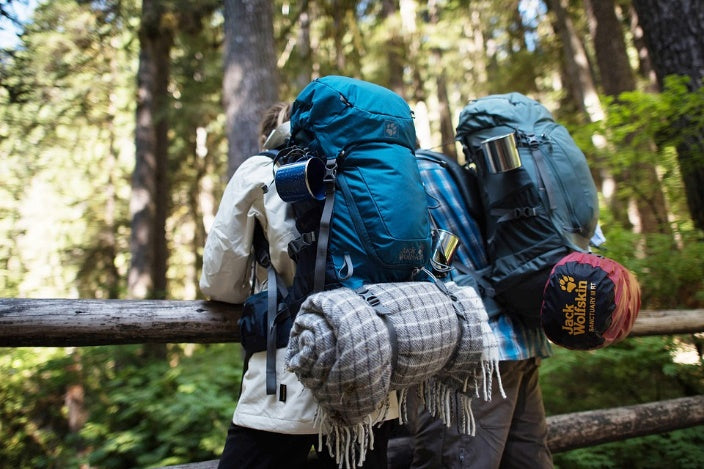
Mar 15 , 2017
How to Become an Expert Backpacker
For some outdoor enthusiasts, its enough to stick to busy campgrounds and popular, familiar trails. Others crave a more immersive way to commune with Mother Nature. Exploring the wide, wonderful world of backpacking is a stimulating and rewarding way to truly experience nature at its finest for the first time.
However, knowing youre interested in getting into backpacking is one thing. Actually doing it properly is another. Here well take a closer look at the basics involved in becoming a truly skillful backpacker. Youll be roughing it like one of the pros in no time!
1. Turn to those with more experience.
Although it might be tempting to simply strike out on your own right from day one, its much better (and safer) to take your first couple of trips in the company of more experienced backpackers. If you have a friend or acquaintance thats into backpacking, get in touch and plan a one- or two-night trip sometime soon. Theyll probably jump at the chance to introduce you to the experience. Plus, they can either loan you some gear to get started with or make some savvy recommendations as to what you should buy.
Dont already know someone that backpacks? Consider signing up for a backpacking class instead. Invite your spouse, a friend, or a family member to do it with you if you like. Backpacking excursions are safer when more than one person is involved, anywaynot to mention, more fun.
2.Choose your route wisely.
Not all routes are created equally when it comes to backpacking, so make sure you choose yours with care. Critical factors to consider when making your choice include:
Fitness Level
Always consider the difficulty of a given route before you commit to an outing. Its easier than you think to bite off more than you can chew! Take your current fitness level into account. If possible, you should also plan ahead far enough to train a little first. Youll get more out of the experience and drastically reduce the possibility of injury.
Distance
Youll also want to plan out not only the number of miles youre good with hiking in a day but the total number of hours you want to spend on the move each day. Choose your route accordingly. For beginning backpackers, a round-trip distance of 3-8 miles is usually comfortable. If backpacking at a higher altitude, err on the side of caution and plan for less distance.
Weather and Climate
Lots of activities are fine to do on a more spontaneous basis, but backpacking isnt really one of them. Backpacking requires planning. Always be aware of what time dusk will fall at a given time of year to make sure youre never stuck hiking in the dark. Check the weather forecast ahead of time as well. If bad weather or storms are expected to move in, its better to simply cancel your trip.
Other Practicalities
Make sure youve properly planned the logistics of your trip from start to finish. Will you be following a looping trail or traveling along a specific route from one point to another? If youre going with a point-to-point trip, make sure youve squared away transportation to and from your starting and ending locations. Dont forget to factor in driving time when deciding how much time youre allowing yourself to set up camp before darkness falls.
3.Make sure you have the right gear on hand.
When it comes to backpacking, there are certain essentials you dont want to be without. If youre traveling with a group and splitting gear responsibilities, make sure everyones clear on whos supposed to be bringing what. Check and double check to make sure youve collectively got everything packed before you leave.
Tent: Choose a tent made specifically for backpackers. Theyre lighter and more compact than the alternatives.
Navigation: Bring topographical maps of the area where youll be hiking, as well as a compass to help you orient yourself if need be.
Cooking Supplies: Youll need waterproof matches or lighters to light your campfires. You may also want to consider bringing a compact stove so you dont have to count on the ability to start a campfire, as well as pots and other utensils.
Water Treatment: In addition to carrying plenty of drinkable water with you, youll need a safe way to filter and treat natural water should you run out. (Never drink straight from a stream or lake.) Bring a portable water filter designed for outdoor use to remove sediment and impurities, as well as purifying tablets to kill bacteria and other organisms.
Youll need to make sure you pack the right personal items as well. These include appropriate clothing, footwear, sleeping bags, a sleeping pad, and energy-rich food to keep your energy up during the day. Expert backpacking done properly is largely about being fully prepared for every possibility.


